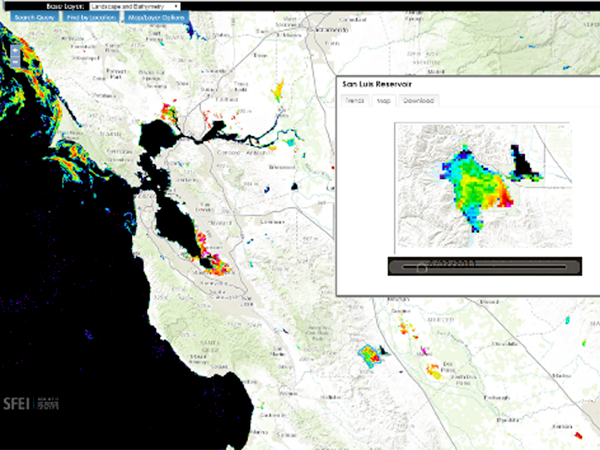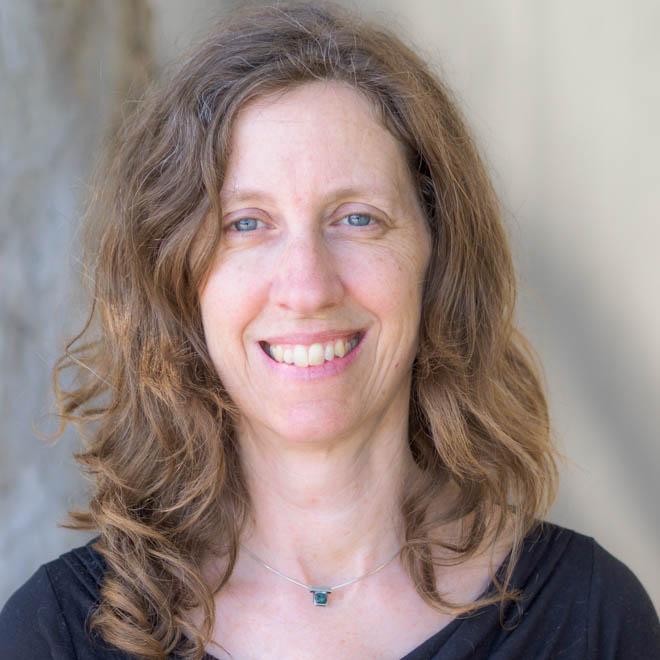Jen Trudeau
Jen Trudeau
Managing Director (SFEI)
Program Managing Director
Clean Water Program
510-746-7347
Jen Hunt received a B.A. in Sociology from Emmanuel College in Boston and a B.S. in Biology from San Francisco State University. Jen has worked at SFEI since May 2002 and is currently the Managing Director for both the Institute and for the Clean Water Program. As SFEI Managing Director, Jen works with the senior management team to manage the finances, human resources, and various strategic initiatives related to organizational management. As Clean Water Program Managing Director, Jen manages the finances of the Bay RMP and Nutrient Management Strategy.
Related Projects, News, and Events
 SFEI study cited in SF Chronicle news story about creosote pilings in the Bay (News)
SFEI study cited in SF Chronicle news story about creosote pilings in the Bay (News)
Filipa A. Ioannou's Chronicle article sounds an alert over the health risks posed by decaying creosote pilings in the Bay, with particular attention on the adverse effects on pacific herring, which she notes is a keystone species.
Working in partnership primarily with the City of Richmond and the County of Contra Costa County, SFEI is developing a new GreenPlan-IT Tracker. The new tool comprises another module within the GreenPlan-IT Toolbox which, along with its three other modules, helps to plan, assess, optimize, and track municipal efforts to reduce stormwater run-off and reduce pollutant loads to the Bay.
 Carlos Street Rain Garden Interpretative Sign (Project)
Carlos Street Rain Garden Interpretative Sign (Project)
The Carlos Street rain garden in Moss Beach collects and filters stormwater from the street, Post Office parking lot, and adjacent private properties and businesses. By placing small rain gardens in strategic locations, pollution going to local water bodies is reduced, resulting in improved water quality in the Fitzgerald Marine Reserve and designated Area of Special Biological Significance.
 SFEI provides perspective on emerging harmful bacterial blooms in the State's larger waterbodies (News)
SFEI provides perspective on emerging harmful bacterial blooms in the State's larger waterbodies (News)
The State has contracted SFEI to provide intellectual, scientific, and technical resources to support its efforts to monitor and report on the ever-growing problem of cyanobacterial blooms in its lakes and rivers. These blooms are such a serious concern because they can generate harmful toxins which can threaten wildlife, livestock, pets, and in certain cases, human life.
 New Trends Charts and Data on Safe To Eat Portal (News)
New Trends Charts and Data on Safe To Eat Portal (News)
Fish and shellfish are nutritious and good for you to eat. But some fish and shellfish may absorb toxic chemicals from the food they eat and the water in which they live. Some of these chemicals accumulate over time in the fish and shellfish - and in the people who eat fish and shellfish. Although the chemical levels are usually low, it is a good idea to learn about advisories and monitoring in water bodies where you fish, and for fish or shellfish you eat.
 RMP Publication: Storm Flows Key to Managing Pollution in Highly Urban Watersheds (News)
RMP Publication: Storm Flows Key to Managing Pollution in Highly Urban Watersheds (News)
Urban runoff is a large and potentially controllable source of pollutants to San Francisco Bay and many other urban aquatic ecosystems around the world. In a RMP study conducted in water years 2007-2010, SFEI scientists made intensive measurements for suspended sediments and a range of trace organic pollutants (PCBs, dioxins, PAHs, PBDEs, pyrethroids and OC pesticides) in dry weather and storm flow runoff from a fully urban watershed in Hayward.
 Carlos Street Rain Garden Interpretative Sign (News)
Carlos Street Rain Garden Interpretative Sign (News)
An informative and beautifully designed interpretative sign educates the public on the effects of stormwater runoff, the impacts on water quality and aquatic life, the beneficial uses of "rain gardens" or natural stormwater treatment areas, and the role individuals can play in cleaning-up our watersheds and preventing pollutants from entering our waterways.
 RMP Journal Publication on Contaminant Loads from the Delta to San Francisco Bay (News)
RMP Journal Publication on Contaminant Loads from the Delta to San Francisco Bay (News)
Results of RMP monitoring of loads from the Delta to San Francisco Bay were recently published in the journal Water Environment Research. The article follows up on a paper published in 2009 in Environmental Toxicology and Chemistry describing mercury concentrations and loads from this large river system to the Bay. This new article presents estimates for PCBs for a 6-year monitoring period and estimates for PAHs, PBDEs, dioxins and furans, the organochlorine pesticides DDT, chlordane, dieldrin, and selenium for shorter periods.
- ‹ previous
- 2 of 2

